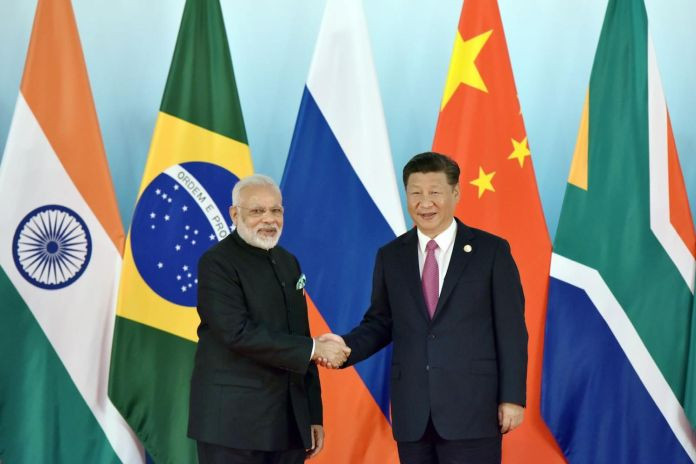By Rupakjyoti Borah
Both India and China also have a common interest in peace and stability in Afghanistan. Besides, the two countries are part of the AIIB (Asian Infrastructure Investment Bank), where India is the second-biggest shareholder, after China.
While earlier this year, Indian and Chinese troops completed the disengagement process at Patrolling Point-15 in the Gogra-Hot Springs region of eastern Ladakh, Chinese forces have now blocked Indian access to traditional patrolling areas along the LAC in what seems to be a classic case of a one-step forward, two-step backward strategy. The idea seems to be to keep on piling the pressure on India in some areas along the border.
Xi Jinping’s speech also notes that ‘achieving the goals for the centenary of the People’s Liberation Army in 2027 and more quickly elevating our people’s armed forces to world-class standards are strategic tasks for building a modern socialist country in all respects’. This could mean that China could go for some quick victories to showcase the might of the PLA in the run-up to its centenary. This means that New Delhi needs to be on guard.
India’s place in America’s world under the Biden presidency: decoding the China factor China-India relations: a petrifying impasse?
Another reason for India to be worried is that video clips from the Galwan Valley clash (of 2020) between Indian and Chinese troops were played out at the National People’s Congress. New Delhi will have to focus on its domestic arena before the gap widens with China on many fronts. At the same time, China has rapidly been making inroads into India’s neighbourhood and a railway line is being planned connecting China and Nepal. This could be a big game-changer as Nepal has traditionally had close ties with India. In 2017, the forces from the two nations had also clashed in Bhutan.
Hence, as Xi Jinping begins his third term, India has genuine reasons to be worried. President Xi Jinping’s ultimate goal is the revival of Chinese national power. At the same time, China might try to spring a surprise on India, in order to set an example.
The way forward for India is to work with like-minded countries like the United States and Japan in order to tackle this threat emanating from Beijing.
As they say, forewarned is forearmed.
Rupakjyoti Borah is Professor and Dean, Arunachal University of Studies, Namsai, India.
[This is an excerpt from an article in The Round Table: The Commonwealth Journal of International Affairs.]






